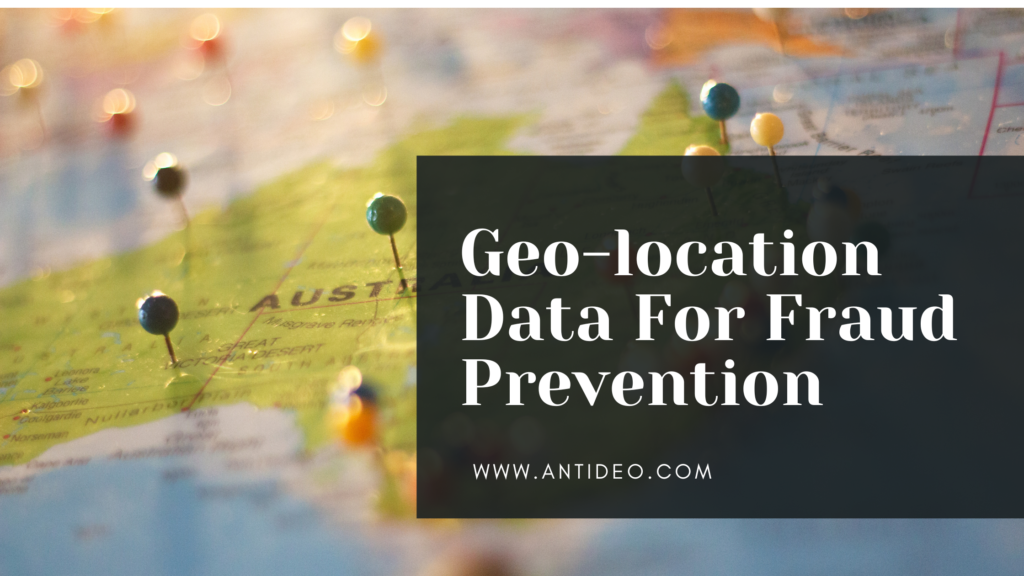- CALL : (+91) 95443 09166
- Support : (+91) 95443 09166
- IP Health IP to Location
- Nov 28
- 3 mins read
Role of geolocation data in fraud prevention

In today’s interconnected world, where digital transactions and online activities have become the norm, fraudsters are constantly devising new ways to exploit vulnerabilities and deceive unsuspecting victims. As the battle against fraud intensifies, technology has emerged as a powerful ally in the fight to protect individuals and organizations from financial losses. One such technological tool that has gained significant prominence is geolocation data. By harnessing the power of location-based information, fraud prevention mechanisms have taken a giant leap forward, bolstering security measures and minimizing risks. In this blog post, we delve into the role of geolocation data in fraud prevention and how it has revolutionized the landscape.
- Geolocation Data: Unlocking the Power of Location
Geolocation data refers to information that pinpoints the physical location of a device or user. It encompasses a range of factors, including GPS coordinates, IP addresses, Wi-Fi access points, and mobile network data. By analyzing this data, fraud prevention systems can determine the geographical origin of online transactions and activities, establishing a crucial link between the user and their physical whereabouts.
- Detecting Suspicious Activities with Geolocation Data
One of the primary applications of geolocation data in fraud prevention is the ability to detect suspicious activities and identify potential fraudsters. By monitoring the location of transactions and comparing it with historical data, fraud detection systems can flag transactions that deviate from a user’s regular behavior patterns.
For example, if a user residing in New York suddenly makes a purchase in London within a short time frame, it raises a red flag. Geolocation data can quickly identify such anomalies and trigger additional security measures, such as requiring additional authentication steps or even blocking the transaction altogether. This real-time monitoring helps prevent fraudulent activities, safeguarding both businesses and consumers.
- Geolocation Data and Account Takeover Prevention
Account takeover (ATO) is a common technique employed by fraudsters to gain unauthorized access to user accounts. Geolocation data plays a vital role in preventing ATO incidents by verifying the authenticity of login attempts. If a login attempt originates from a location that deviates significantly from the user’s usual patterns, it suggests a potential account compromise.
By analyzing the geolocation data associated with login attempts, fraud prevention systems can identify high-risk transactions and prompt users to take necessary action, such as resetting passwords or contacting customer support. Geolocation data acts as an extra layer of defense against unauthorized access, significantly reducing the success rate of account takeover attempts.
- Geo-Fencing: Fortifying Fraud Prevention
Geo-fencing is a powerful technique that employs geolocation data to create virtual boundaries around specific geographical areas. This method has proved to be instrumental in preventing fraudulent activities related to location-based services, such as mobile payments and check-ins.
With geo-fencing, businesses can establish predefined boundaries for legitimate transactions. Any transactions originating from outside these boundaries can be flagged as suspicious and subjected to enhanced scrutiny. This targeted approach helps combat fraud schemes involving stolen identities or the misuse of location-based services.
- Enhancing Risk Assessment with Geolocation Data
Geolocation data provides invaluable insights that enable businesses to enhance their risk assessment capabilities. By analyzing the location patterns associated with specific types of transactions, organizations can identify high-risk regions and take proactive measures to mitigate potential fraud.
For instance, if a company notices a surge in fraudulent activities originating from a particular region, it can implement stricter security measures for transactions originating from that area. Geolocation data empowers businesses to tailor their fraud prevention strategies, ensuring a more effective allocation of resources and minimizing potential losses.
Conclusion
Geolocation data has emerged as a game-changer in the realm of fraud prevention. By leveraging the power of location-based information, businesses and organizations can bolster their security measures and stay
Related Posts
Importance of IP reputation management any business
In the digital world, where online businesses thrive, establishing and maintaining a positive reputation is crucial for sustained success. One aspect that often goes unnoticed but holds significant importance is IP reputation management. As businesses…
- Oct 28
- 2 mins read
Antideo’s API Streamlines Identity Verification Processes
Introduction In today’s digital landscape, businesses increasingly face challenges in verifying customer identities and ensuring secure transactions. Manual identity verification processes consume time, prone to errors, and compromise customer experience. Antideo’s API integration optimizes identity…
- Sep 28
- 2 mins read
Latest Post
Role of geolocation data in fraud prevention
- 3 mins read
Categories
Subscribe to Our Blog
I want the latest update in...